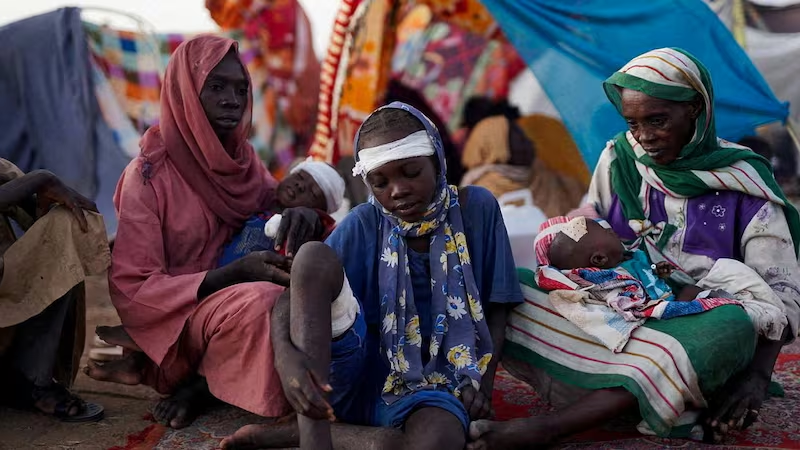The deputy spokesman for Secretary-General António Guterres on Thursday said the UN’s Office for the Coordination of Humanitarian Affairs (OCHA) has warned of a calamitous humanitarian situation for thousands of families displaced from El Fasher, in Sudan’s North Darfur State, following recent violence.
Farhan Haq who was addressing the press in New York revealed that across the locality of Tawila and surrounding areas, displaced people are living in extremely harsh conditions – without adequate food, clean water, shelter or medical care.
“Humanitarian organizations are working with local partners to support the establishment of new camps to accommodate recent arrivals from El Fasher, adding to the more than 650,000 displaced people who had already sought refuge in Tawila,” he stated. “In the Tawila Al Omda displacement camp alone, more than 3,000 recent arrivals are in urgent need of basic items and shelter assistance – including plastic sheeting, mats and blankets as temperatures drop.”
“Many – including the injured, people with disabilities, and unaccompanied children – are sleeping in the open without protection or sanitation facilities,” Haq added.
According to the spokesperson, similar conditions prevail in the camps of Daba Al Naira and Um Jangour, where over 6,500 people who recently escaped attacks in El Fasher lack shelter and essential supplies.
He said that on Tuesday, an inter-agency mission led by the Deputy Humanitarian Coordinator in Sudan, Antoine Gérard, arrived in Tawila to engage with affected people and local communities, assess needs, and strengthen the ongoing response.
“Meanwhile, our partners report that hundreds of displaced families who fled El Fasher on foot have reached Al Dabba locality in Northern State, after days of walking through harsh conditions. Some 2,800 people are now sheltering in overcrowded sites with little access to food, water or medical assistance, and many lost family members during the journey,” Haq said. “With more families expected to arrive in the coming days, urgent assistance is needed – including food, medical care, psychosocial support, shelter and warm clothing – especially as temperatures drop.”
“The UN and partners are mobilizing additional emergency supplies for the area, but available stocks are limited,” he added.
Meanwhile, fighting continues in West Kordofan State, with civilian casualties reported in recent clashes. Dozens of families displaced from Al-Udayyah locality have reached El Obeid in neighbouring North Kordofan after fleeing attacks near Nahud over the past two weeks, Haq said.
The situation in the area remains highly volatile and dynamic, with displacement out of El Obeid also having been reported in recent days by our colleagues from the International Organization for Migration.
“Many arrived exhausted and hungry after several days on foot. Some 250 displaced people are currently staying in four temporary shelters with minimal access to basic services. Local authorities and organizations have established communal kitchens, but food stocks are running low,” Haq said. “With the onset of colder weather, displaced families urgently need blankets, mosquito nets, warm clothing, and medical assistance for children, older people and those suffering from chronic illness.”
OCHA stresses that urgent additional support is needed to meet rising humanitarian needs in the Darfur and Kordofan regions. This year’s humanitarian response plan for Sudan is only 28 percent funded in the face of these needs, with $1.17 billion received to date of the $4.16 billion required.”




